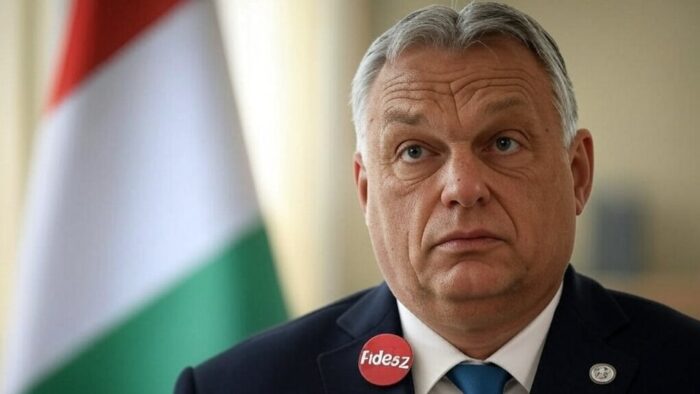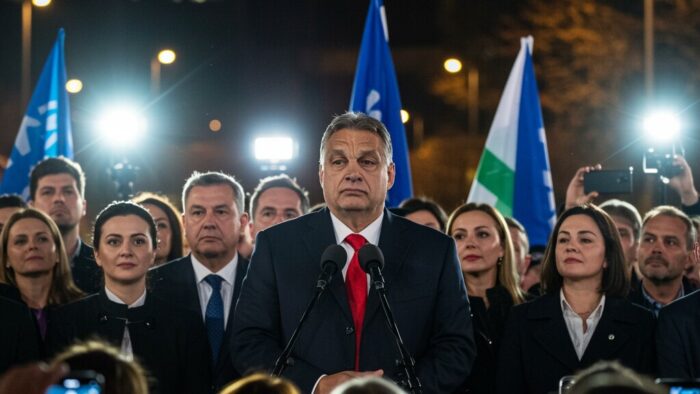The EU conservatives’ far-right cooperation crisis has forced the European People’s Party into a defining choice between traditional centrist alliances or working with Patriots for Europe. On 29 October 2025, Politico reported that the center-right EPP has two weeks to decide its strategy following a failed vote exposing deep divisions over the cordon sanitaire against far-right groups. The article begins:
Europe’s center right has two weeks to decide on the strategy that will define its next four years in the European Parliament: Dilute its ambition and stick with traditional mainstream allies — or work with the far right to get the job done. While governments in EU capitals grapple with the rise of populists, and centrist parties struggle to hold their ground, pan-European groups in the Parliament are confronting similar challenges. Last week’s failure to pass a landmark law aimed at cutting red tape underlined how little room for maneuver the center still has. The center-right European People’s Party “still has the choice between working with the far right that wants to demolish Europe, or a stable pro-European coalition,” Bas Eickhout, co-chair of the Greens, considered one of the EPP’s centrist allies, told POLITICO.
Read more: https://www.politico.eu/article/european-peoples-party-far-right-european-parliament/
Key Points
- The European People’s Party negotiated with Patriots for Europe, the far-right Europe of Sovereign Nations, and the European Conservatives and Reformists to back simplification legislation before using that agreement to pressure centrist allies.
- Patriots for Europe lawmaker Pascale Piera called on the EPP to abandon its old allies from the center-left Socialists and Democrats, liberal Renew Europe, and the Greens to make a deal with far-right groups instead.
- The debate over the simplification law is forcing a reckoning for the EPP over whether to uphold the cordon sanitaire dictating that centrist groups don’t work with the far right or declare the centrist coalition failing.
- Critics warn that leaning on the far right to pass the bill would show a strategic direction for the EPP and set a dangerous precedent for legislative work going forward in the European Parliament.
National Conservative Parties Gain Power in European Parliament Through New Alliance
Parties representing the Global National Conservative Alliance (GNCA) have established significant influence within the European Parliament through the Patriots for Europe parliamentary group, which became the third-largest group with 84 MEPs following its formation in July 2024. Led by Jordan Bardella of France’s National Rally, the coalition comprises Hungary’s Fidesz, Austria’s FPÖ, Spain’s Vox, and Belgium’s Vlaams Belang, positioning itself on a platform emphasizing national sovereignty, Euroscepticism, and opposition to deeper EU integration. This parliamentary bloc reflects the broader European national conservative movement’s emphasis on traditional cultural identity and resistance to supranational governance.
These parties have increasingly adopted left-wing economic policies to broaden their appeal among working-class voters frustrated with government austerity. Germany’s AfD attracted 33% of blue-collar voters in European Parliament elections, more than any other party, while France’s National Rally supports lower retirement ages and welfare increases. This strategic shift represents “welfare chauvinism”—supporting generous benefits for citizens while excluding migrants—and marks a departure from Reagan-era free-market ideals toward nationalist protectionist policies. Parties from Sweden to Greece now call for higher welfare benefits, subsidies, and protectionism to capture voters alienated by establishment parties.
Parliamentary activities demonstrate coordinated efforts to advance their agenda. Belgian MEP Tom Vandendriessche is leading the Patriots for Europe motion to designate Antifa as a terrorist entity, with Hungary’s Viktor Orbán and Foreign Minister Péter Szijjártó supporting the designation following Trump’s similar U.S. classification. Germany’s AfD promised to classify Antifa as a terror group if elected, reflecting how these parties deploy anti-fascist movements as scapegoats to deflect responsibility from far-right violence. The coordination extends to controversial decisions such as Patriots for Europe unanimously approving Likud’s observer status during a Madrid meeting, despite concerns about legitimizing parties with Nazi-era connections like Austria’s FPÖ.
External References:
- Patriots for Europe — Wikipedia
- European Parliament: Conservatives and Patriots mark the end of Identity and Democracy — Euronews
- The Patriots for Europe: Dismantling European Democracy from Within — Verfassungsblog
Disclaimer: The Global Influence Operations Report (GIOR) utilizes AI throughout the posting process, including the generation of summaries for news items, introductions, key points, and, often, the “context” section. We recommend verifying all information before use. Additionally, all images are generated using AI and are intended solely for illustrative purposes. While they represent the events or individuals discussed, they should not be interpreted as real-world photography.










